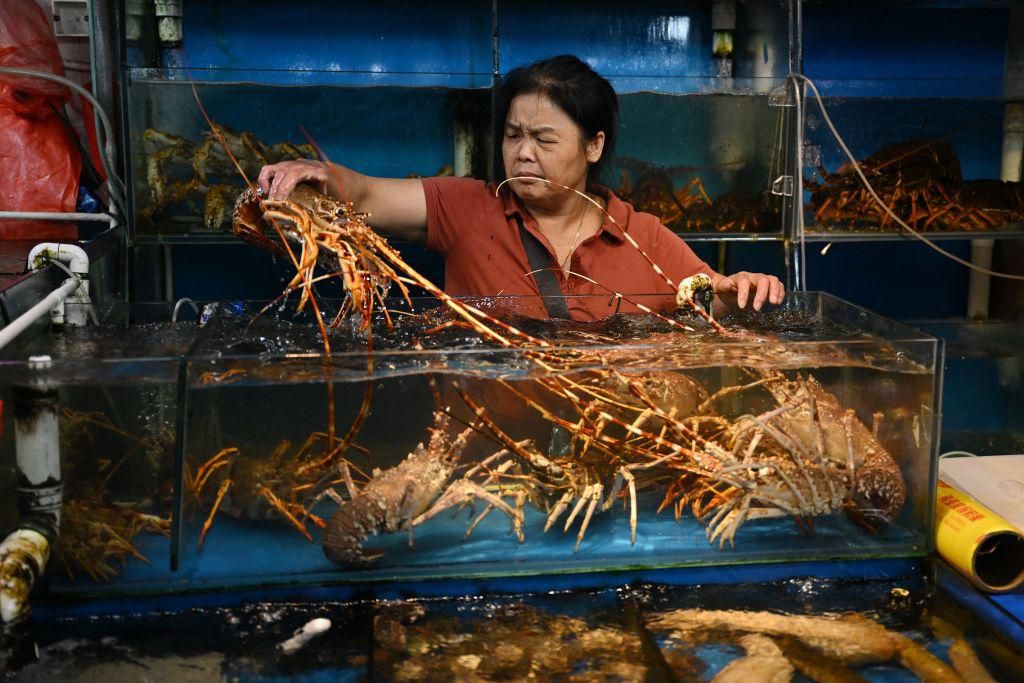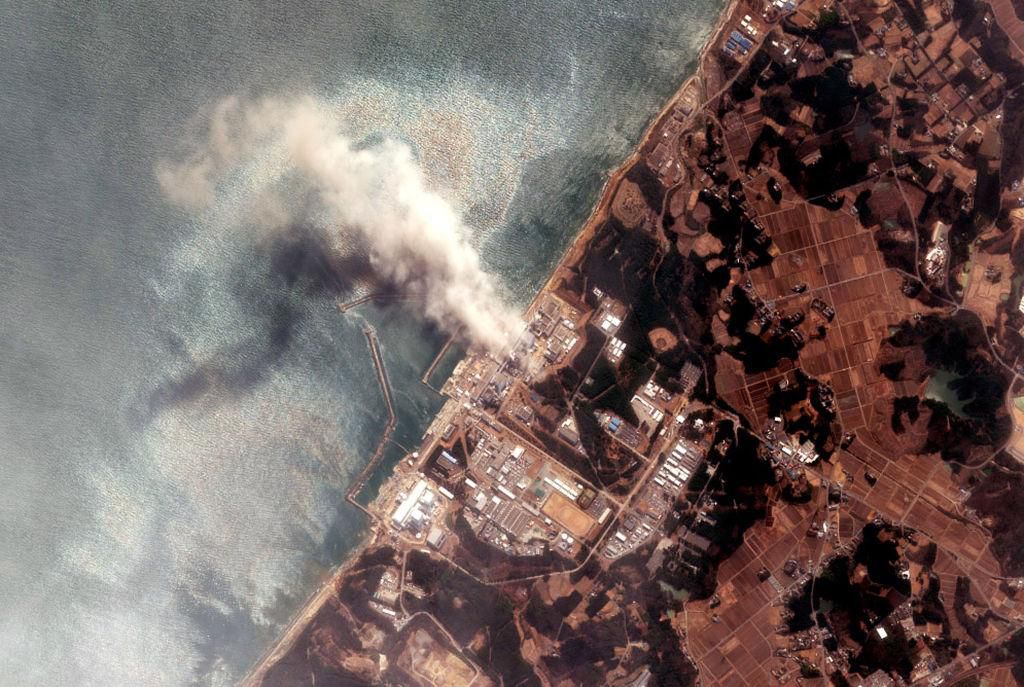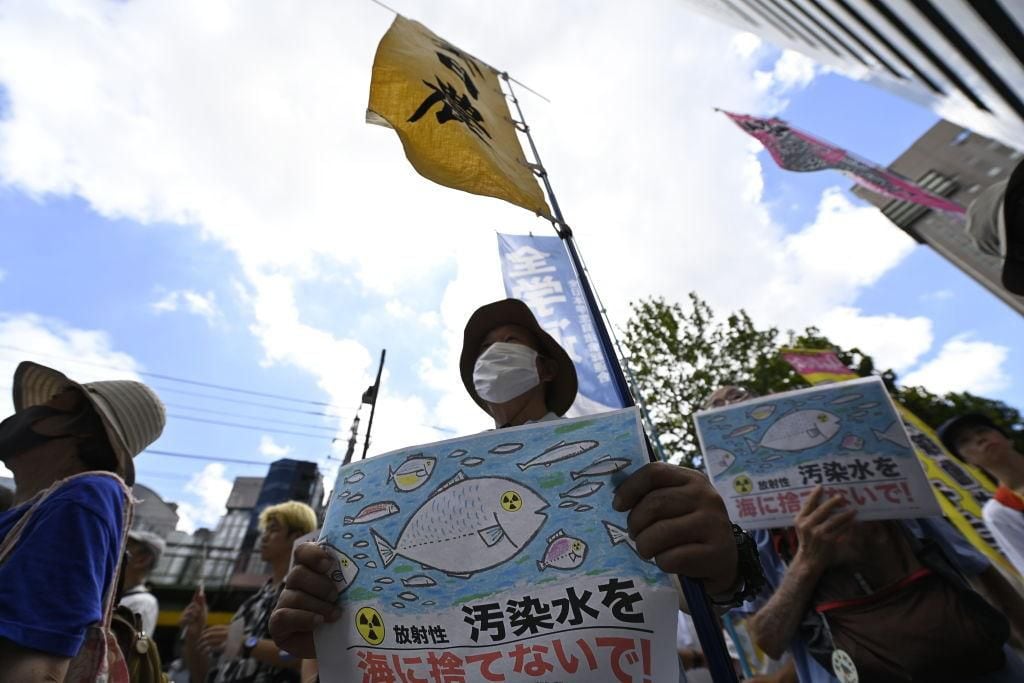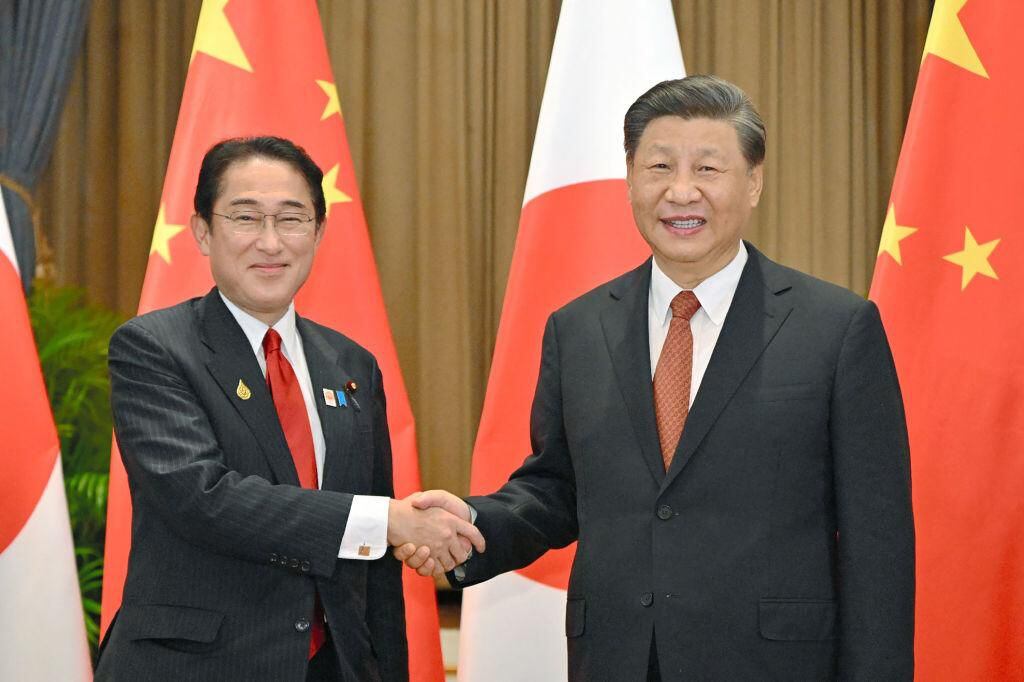A decision that has caused much discomfort: Japan has begun this week to dump wastewater from the Fukushima nuclear plant into the Pacific Ocean.
Several neighboring countries expressed their dissatisfaction with the measure, but China it has even gone further and taken action on it.
LOOK: Putin signed a decree that obliges members of the Wagner Group to swear allegiance to Russia
The Beijing government is the main buyer of seafood to Japan and on Thursday said it will block imports of these products into the country.
On different platforms and media, the Tokyo government has insisted that the water does not pose any risk to ecosystems, something many scientists agree on.
Even the International Atomic Energy Agency, attached to the UN, had approved the plan to dump the sewage.
But critics of the measure have been clear, pointing out that more studies must be done and that the dumping should be stopped.
The truth is that close to a million tons of water, which was being stored in tanks inside the plant, will be dumped into the ocean over the next 30 years.
China, which has been the country that has been the most opposed to the measure since Japan’s plan was announced two years agopointed out that the decision of the Japanese government is “extremely selfish and an act of irresponsibility” and indicated that they are “inheriting an open wound to future generations of humanity.”
After issuing the statement, China’s customs office announced that the ban that existed on the importation of seafood from Japan’s Fukushima region and other nearby prefectures was now immediately extended to all seafood coming from Japan. Japan “to protect the health of Chinese consumers.”
This measure is calculated to hurt the Japanese economy and even Tokyo admitted that the businesses dedicated to this industry were going to be hit by this issue.
And it’s true: China and Hong Kong together import more than $1.1 billion worth of seafood from Japan each year.
That is equal to half of the exports of this item for the Japanese country.
a stormy relationship
But analysts point out that this Chinese reaction is closer to the political spectrum than serious scientific concern.
Tokyo’s relationship with Beijing has soured in recent years, drawing it closer to the United States, and even leading it to show support for Taiwan, an island China claims as its own.
“This incident is much more a symptom than a cause of worsening relations between the two countries,” Asia Society Policy Institute international policy expert Neil Thomas told the BBC.
“Beijing might have protested a lot less on this water issue if its relationship with Tokyo I was in a better state,” he said.
For its part, in response, Japan will “reject criticism of its plan, but it will not do anything provocative,” James DJ Brown, a professor specializing in Japanese international politics at Temple University, told the BBC.

“It is true that Tokyo is concerned about what it sees as a series of aggressive actions by the Chinese government, but it understands that it needs and is interested in maintaining a stable relationship with its neighbor,” he notes.
But maybe you don’t need to wait long. Some observers believe that China will not maintain the ban for long.
“China’s economic growth difficulties mean that any ban is short and limited, in order to mitigate the effect that this may have on importers and people close to these businesses,” Thomas said.
South Korea also has a long-standing ban on some Japanese seafood. But on Thursday his government had a more muted reaction.
The first Minister Han Duck-soo He said that “what is important now is whether Japan, as promised to the international community, strictly follows scientific standards and provides information in a transparent manner.”
Seoul and Tokyo, despite historical differences, have grown closer in recent years, under the shelter of an alliance with the US, while threats from China and North Korea continue.
However, many Koreans oppose the dumping of the water and this Thursday dozens of protesters tried to take to the streets near the Japanese embassy to protest against the measure.
In addition, protest mobilizations were also experienced in Hong Kong and Tokyo.
For his part, Mark Brown, head of the Pacific Islands Forum and who had fiercely criticized the plan, said he now believes it does meet international security standards.

Environmental impact
Since the 2011 tsunami destroyed the Fukushima nuclear plant in 2011, the Tepco company has been pumping water to cool the plant’s reactors.
This means that the plant produces contaminated water, which is treated and stored in tanks.
However, even after treatment, the water contains unacceptably high values of radioactive substances such as tritium and carbon-14 that are very difficult to remove.
Japan’s plan has been to dilute these treated waters with seawater before dumping them into the ocean.
More than 1,000 tanks have been filled and the Japanese government points out that this is not a sustainable decision in the long term.
He has also said that after treatment and dilution in seawater it is safe to dump.
Many scientists have backed the plan, saying it works.
The UN International Atomic Energy Agency has also said the plan meets international standards and would have “negligible” impact on the environment.
Japanese authorities have vowed to continuously monitor radiation levels in the ocean and maintain a high level of transparency.

But there are some who are still skeptical given Tepco’s track record: it’s the same company that was accused of lack of transparency during the 2011 disaster.
Tepco has since apologized for what happened.
And while dumping treated water into the ocean is common practice for nuclear plants, critics have pointed out that the amount being released from Fukushima is on a much larger and unprecedented scale.
Some scientists note that more studies should be done on how it would affect the ocean floor and marine life.
For example, the environmental group Greenpeace has also called for the water to remain in the tanks until better processing technology is invented.
The plan has particularly angered Japan’s coastal communities and fishermen, who fear it will harm their livelihoods as some consumers avoid seafood from the area, which has never fully recovered economically since the 2011 disaster. .

Furthermore, Japanese citizens remain deeply divided on the issue, with only half supporting dumping the water according to the latest polls.
“I think there should be many other methods, instead of releasing it into the ocean,” Keiko Kisei, who was demonstrating in Tokyo on Thursday against the move, told Reuters news agency.
“However, they chose to dump the water and cause trouble for the world. It is absolutely unacceptable”, he concluded.
Source: Elcomercio
I am Jack Morton and I work in 24 News Recorder. I mostly cover world news and I have also authored 24 news recorder. I find this work highly interesting and it allows me to keep up with current events happening around the world.

:quality(75)/cloudfront-us-east-1.images.arcpublishing.com/elcomercio/DBZUG7JCK5FMHKA3CUPRUSPTSA.jpg)

:quality(75)/cloudfront-us-east-1.images.arcpublishing.com/elcomercio/BUNML4TQNVHSBOBMY5FC3QEM2M.jpg)

:quality(75)/cloudfront-us-east-1.images.arcpublishing.com/elcomercio/FGNDNEX4V5AKXF6INLTN4FLZUQ.jpg)

